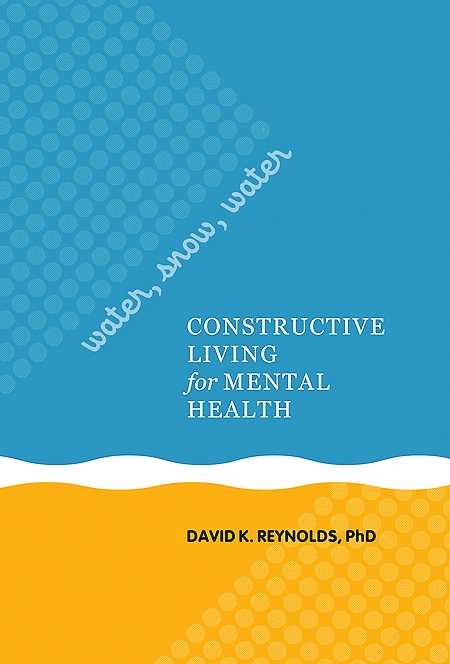Water, Snow, Water
Constructive Living for Mental Health
Reynolds teaches us how to accept things as they are as a path to good mental health.
David K. Reynolds, creator of a practical self-help method called Constructive Living, adds to an already impressive list of titles with this brief but wide-ranging new collection of thoughts on an Eastern answer to the failings of Western psychotherapy. Water, Snow, Water: Constructive Living for Mental Health surveys the premise and purpose of a form of therapy that focuses not on feelings, as in traditional psychotherapy, but on actions. Feelings, Reynolds claims, are useful, but they shouldn’t be the basis for our every move.
“We must balance our awareness of feelings with attentive, purposeful action in the world,” writes Reynolds. It’s easier said than done, of course. As a society, we tend to see only two fraught choices, he says: honor individual freedom and invite chaos or restrict people’s actions and risk repression. Reynolds thinks there’s another path. He instead encourages “freedom in the areas that are genuinely free and self-control in the areas that require personal and social responsibility.”
It’s a provocative theory, but the brief descriptions given in Water, Snow, Water may not be the most useful starting point for readers just approaching Reynolds’ work. Instead of a comprehensive explanation of Constructive Living, Reynolds’ latest book is more of a patchwork of interviews, quotations, and topic-based teachings that dip into his greater knowledge base from several different angles. New students may find it helpful to have a copy of Reynolds’ classic textbook, Handbook of Constructive Living, on hand while working through the concepts presented here.
Reynolds admits that his texts are only a small part of the teaching of Constructive Living. Certification in the method involves long hours in contact with masters who live the principles in their everyday lives. Reynolds brings some of that embodied instruction into his book, however, by including quotations from former and current students. What does it mean to really accept things as they are? For RH, from Indiana, it means accepting his imperfect parents, flaws and all. For MD, from Oregon, it means realizing her panic attacks may never end, but she is nonetheless free to go out in the world. Students’ stories give solid form to concepts that might otherwise remain too abstract.
Reynolds closes with a series of assignments designed to bring his ideas into everyday life. As you might expect, these are not essay questions focused on uncovering hidden traumas from your childhood. Instead, the assignments get readers busy doing things in a new way. “Find something beautiful and smile at it,” writes Reynolds. Or, “Find something ugly and make it look better.” This is the essence of Constructive Living that comes across in Water, Snow, Water: see things for what they are, react appropriately, and enjoy the fruits of your labor.
Reviewed by
Sheila M. Trask
Disclosure: This article is not an endorsement, but a review. The publisher of this book provided free copies of the book to have their book reviewed by a professional reviewer. No fee was paid by the publisher for this review. Foreword Reviews only recommends books that we love. Foreword Magazine, Inc. is disclosing this in accordance with the Federal Trade Commission’s 16 CFR, Part 255.

